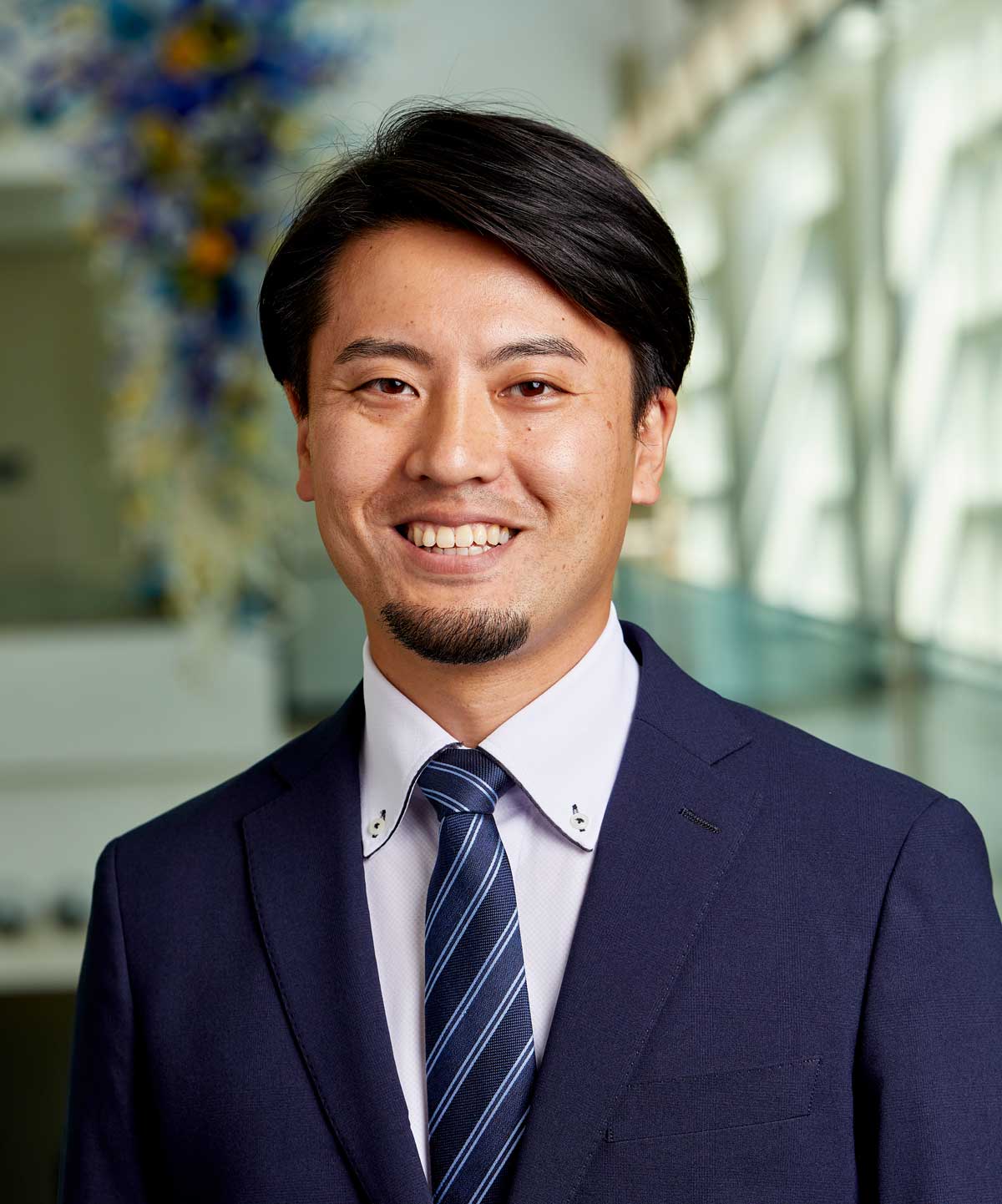Climate change is no longer a future risk but rather a clear danger already affecting our lives. Now more than ever, we need to get our hands dirty in order to turn things around.
Last July, my family and I left our home in Tokyo, Japan, and crossed the Pacific Ocean so I could begin my studies in the Full-time MBA Program in the Scheller College of Business. Prior to this move, I had worked with a leading Japanese general contractor called Kajima. Having an M.S. in Civil Engineering, I enjoyed managing bridge construction projects that improved people’s living environment in Tokyo and Indonesia. In my last couple of years at Kajima, I thoroughly appreciated and enjoyed the opportunity to work in renewable energy projects, such as renewable biogas and offshore wind turbines. These projects kindled my passion for sustainability. Now, I’m learning the skillset to commercialize innovative technologies and hoping to contribute to the United Nations Sustainable Development Goals in the future.
As a result of my interest in sustainability, I was keen to attend ClimateCAP, a global MBA summit on climate, capital, and business that was held February 25-26, 2022, at the Kellogg School of Management at Northwestern University. The conference, now in its third year, brought together over 260 MBA students, business leaders, and experts to address climate challenges and how businesses are working towards carbon reduction.
I traveled to the conference with four amazing Scheller peers: Maggie Joyce, Bill Landefeld, Rileigh Presnell, and Molly O’Neil. The Ray C. Anderson Center for Sustainable Business generously covered most of our conference and travel expenses. All of us are serving as 2021-22 Scheller College Graduate Sustainability Fellows (a program facilitated by the Center). I am grateful to Rileigh, my MBA peer mentor from my first semester, for telling me about the conference. I was eager to attend in order to hear from business leaders and experts, to learn about their current challenges and where their efforts are shifting, and to better project my future role in sustainable business.
Scheller MBA students Bill Landefeld, Rileigh Presnell, Molly O’Neil, Maggie Joyce, and Akihiro Manda stand before the Kellogg building in which ClimateCAP was held.
Did the conference live up to my expectations? Absolutely—and so much more than expected. The conference was well organized and included a variety of panelists from business schools, government, corporations, and more, who covered many climate challenges and opportunities. It’s hard to choose the most significant experience at the conference but hearing from Jason Offerman (COO & Co-founder of Persefoni) is definitely on the shortlist. He quoted Larry Fink in his presentation: “The next 1,000 unicorns won’t be search engines or social media companies, they’ll be sustainable, scalable innovators–startups that help the world decarbonize and make the energy transition affordable for all consumers.” Offerman’s talk really resonated with me. He described why entrepreneurship is so important in achieving the goal of net-zero emissions by 2050. I learned that many technologies and methods need to be explored and exploited in order to make massive strides in such a short timeframe. Startups’ speed and flexibility will be critical to the mission. At the same time, large firms need to evaluate and adapt quickly. The main conference room for ClimateCAP
The main conference room for ClimateCAP
Many of us have probably heard leaders say something like, “I will be retired by 2030 (or 2050), so the future depends on you.” When people say something like this, I think they are trying to encourage the next generation. However, these types of statements also reflect some senior leaders’ attitude towards the climate crisis: that it’s “someone else’s problem.” The truth is, all generations need to be working towards undoing the harm we’ve inflicted on our environment. Everyone–and that includes senior executives, Millennials (e.g., myself and many MBA students worldwide), and the following generations–needs to work together to achieve sustainable goals and leave a positive legacy. From a business point of view, firms that embrace a “someone else’s problem” attitude face the risk of getting left behind in the climate change era.
While I cannot change other people’s behavior directly, with my actions and words, I hope to inspire people and draw them closer to a shared goal for a brighter future. I believe that pursuing sustainability is necessary, and it’s my personal and professional aspiration to do so regardless of whether capital follows. It’s important to note that the world is switching gears to challenge climate change collectively–and that shift presents a multi-trillion-dollar business opportunity. This development should excite not only sustainability enthusiasts but also any individuals who want to be the vanguard of a global transition to sustainable business.
In light of everything I learned at ClimateCAP, I’m excited to see what the future holds for me. Repeatedly, I heard speakers discuss the necessity of new infrastructure solutions as well as updates to existing infrastructure. I am excited to know that I may be part of sustainability-driven infrastructure development after I earn my MBA.
ClimateCAP is, so far, the most meaningful MBA conference I’ve attended. To any MBA student thinking about attending next year, I would say without hesitation, “Go!” You don’t want to miss the chance to learn about business risks and opportunities related to climate change or to meet like-minded MBA students from all over the world.
 Akihiro and his Scheller peers get ready to ride an electric school bus at ClimateCAP. Akihiro called his first ride on an American school bus “a silly dream come true.”
Akihiro and his Scheller peers get ready to ride an electric school bus at ClimateCAP. Akihiro called his first ride on an American school bus “a silly dream come true.”
About Our Guest Writer:
Akihiro Manda is a first-year student in the Full-time MBA Program at the Georgia Tech Scheller College of Business.
